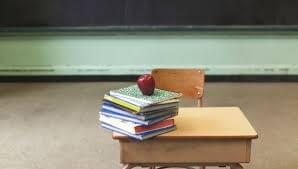I get asked this question all the time by veteran and new teachers. They are concerned with hitting Social Studies and English Language Arts Common Core content standards. Textbooks, with content specific narratives of historical events (a few paragraphs or a page at most), and short stories or excerpts of great pieces of literature, make it easier for teachers to "hit the standards" and stay on track on their curriculum calendars.
So why bother to teach a book? Much less, multiple books? They're expensive, and many school districts no longer indulge in buying class copies for teachers, so if you teach a book in Arizona, chances are, you're buying it (or 35 of them). That can be quite an outlay of cash.
I always advocate teaching the whole hog -- the entire book, be it a narrative about a historical event or an entire piece of literature, and getting a hard copy between my students' palms. A few paragraphs or pages in a textbook or an excerpt of a novel is NOT the same as reading the entire thing, no matter how well annotated, accompanied by graphic organizers, slide presentations, guided notes, videos, or highlighted vocabulary. Why?
I knew this in my bones, but here's scientific proof that exposure to books is great for your students, every single one of them:
In a nutshell, books level the social playing field. The number one determinant in your students' educational attainment, parental income (known as socio-economic status), can be overcome when they read, a lot. Research has also shown it doesn't really matter what they read, so long as they're reading books. That reading can put them on par for a lifetime with students coming from more privileged backgrounds.
That means teachers -- you -- have to read like the Dickens and teach new books with language students can easily digest. You also need to teach the old classics, with old constructions that will make your students struggle and stretch their reading abilities. The key is finding a balance and throwing as many books and stories -- fiction and non-fiction -- at your students as they can take. And then, perhaps, throw in a few more. Just for good measure.

To that end, I'm reading. And reading and reading. And when I find books that are stellar for the classroom, that enable teachers to hit both the CC standards (which for Social Studies have changed yet again in my state) and their districts' and parents' academic expectations, I publicize them as much as possible here.
You've got so much else to do -- reinforce expectations in your classroom, communicate with parents, keep your administration apprised of what you're teaching, give students individualized feedback on their progress, differentiate the curriculum for all the learners in your classroom. I hope that identifying some of these new books appropriate for your classroom, and the resources to teach them, helps you do what you love the most -- teach!
